We are facing a crisis in Scotland and until things change we will continue to needlessly lose lives to drugs.
I know what I’m speaking about. On May 14 I hit 18 years clean off heroin.
Overdose, accidental overdose and suicide all plague our society.
And we will never stop all drug deaths. But we can prevent some.
That is why I welcome measures which could open the door to safe drug consumption rooms in Scotland.
Giving addicts a safe place to take drugs is an essential step.
But these venues – also known as overdose prevention centres – could also give the government an opportunity to offer support that is not being provided at present.
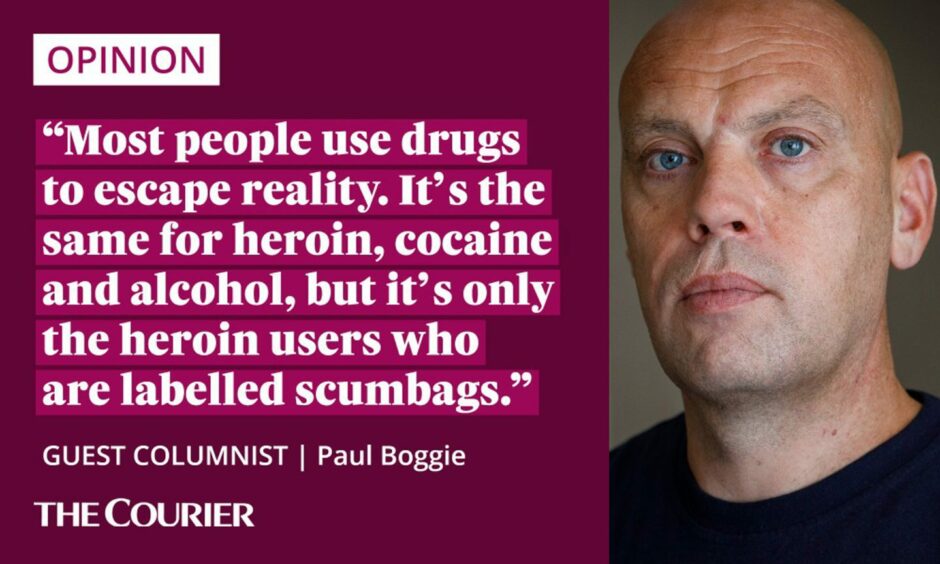
Much more work is also needed to tackle the horrendous stigma attached to addicts though.
As an ex-heroin addict, I know many in Scotland will avoid drug consumption rooms out of shame and embarrassment.
And who can blame them when society judges them so harshly?
I only managed to come off heroin because I faced my demons, and put the work into understanding what was going on in my own mind.
If addicts were able to take drugs in a safe environment many more might be able to open up about their struggles while they’re there.
But they have to understand that these are places where they can go for support without being judged.
Will Scotland go it alone on drug consumption rooms?
We’re talking about drug consumption rooms because of a newly-announced consultation on a proposed Drug Death Prevention Scotland Bill.
It is being led by Labour MSP Paul Sweeney and it could lead to a Scottish Parliament vote on introducing these centres.
These are places where drug users can go to inject drugs under supervision in a clean, safe environment.
However, a previous attempt to open such a centre in Glasgow was blocked by the UK Home Office which controls drugs policy.
It comes as Police Scotland figures show 1,295 deaths were linked to illicit drugs last year. The total was down from 1,411 in 2020 – the first fall in five years.
But every death is a tragedy – not least in Dundee, which has been labelled the drugs death capital of Europe due to the disproportionately high level of fatalities in the city.
Education can make all the difference
Education is another crucial part of what is needed to tackle Scotland’s drugs death crisis.
It would have helped me.
I never injected heroin, but I chased the dragon (smoking with foil) for seven years.
This continued every day until one day I couldn’t get the drug.
When cold turkey started to take hold, so did the shocking reality that I was a heroin addict.
OPC Overdose Prevention Centre Ambulance with @PeteKrykant_OPC & @TransformDrugs at Westminster today. Safe consumption rooms stop people dying, help people access services to recover and reduce discarded needles. They work, we need the law to catch up!https://t.co/0T9XIol2bX pic.twitter.com/y7VKzMPT74
— Joanna Cherry QC (@joannaccherry) June 6, 2022
It’s why I believe so strongly in education as part of a package of measures to tackle Scotland’s problem with addiction.
My education as a youngster involved a picture of a needle, a belt and a spoon.
If I had known I could still become a heroin addict through smoking it I might have avoided it.
I do school visits now and I have spoken to many parents, who show justified anxiety about what I’m teaching children.
“‘I don’t want my kids hearing about heroin,” they tell me.
I fully understand this but I always argue that your kids will encounter drugs, regardless of how much you try to protect them when they’re small.
Isn’t it better to educate them so that they know the dangers?
I came from a loving family, a well respected family.
But when I was actively using drugs I didn’t care about what my family thought, or society.
Heroin was my best friend and it allowed me to escape all negative emotions about who I had become.
I’m lucky I’m here to tell the tale
I made a bad choice in my naivety and I paid the price.
But I’m still one of the very lucky ones.
I’m alive, unlike so many of my friends. And I’m drug free, unlike most of the friends I used heroin with for all those years.
Addicts have to want to get clean and they also have to believe it’s possible.
Early bed, 5.30am alarm call for 1st flight from Edinburgh to London City to visit Westminster
Time to get them telt – Drug Policy Reform & Overdose Prevention Centres now!
Choice
This 👇 Or This 👇 pic.twitter.com/n06B6xUY2D
— Peter Krykant (@PeteKrykant_OPC) June 5, 2022
And that’s why I’ve dedicated my life to sharing my story.
If I can go on to stand outside Buckingham Palace as a Scots Guardsman after my heroin addiction surely that offers hope and much needed inspiration, not only to addicts but to the families and loved ones.
Which brings me back to stigma.
Drug consumption rooms only part of what Scotland needs
Most people use drugs to escape reality
It’s the same for heroin, cocaine and alcohol, but it’s only the heroin users who are labelled scumbags.
This has to change.
And it’s why the authorities need to involve addicts in coming up with solutions.
Many addicts will choose to lie and hide from their reality.
I was spat on and I know how it feels to hear: “Go away junkie”.
But if we want addicts to engage with the resources we offer we have to try to be less judgmental.
Consumption rooms are only a small part of what is needed in Scotland, but it’s a step in the right direction.
We must encourage addicts to engage with the resources we currently offer and look to adding plenty more.
Paul Boggie is a former heroin addict from Fife who went on to join the Army and became a guard outside Buckingham Palace. His book, Heroin to Hero, tells his story.
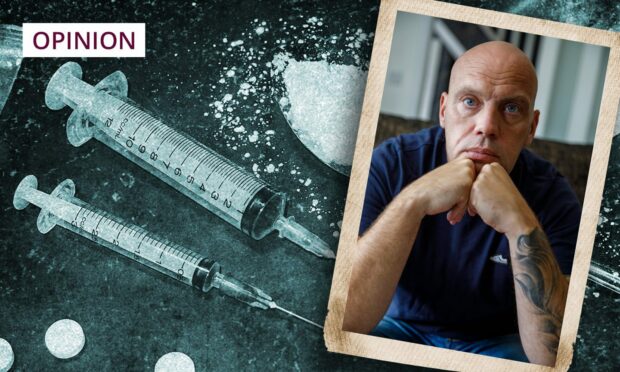
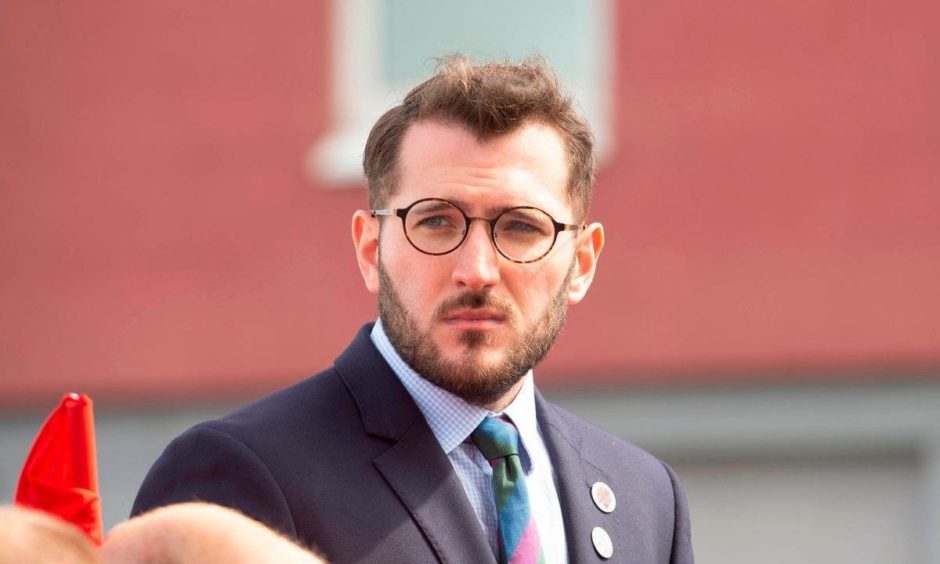
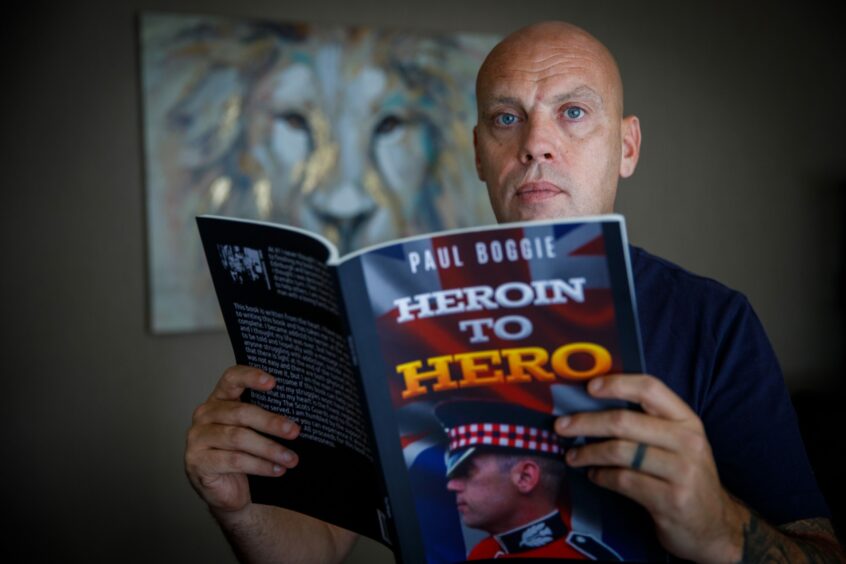

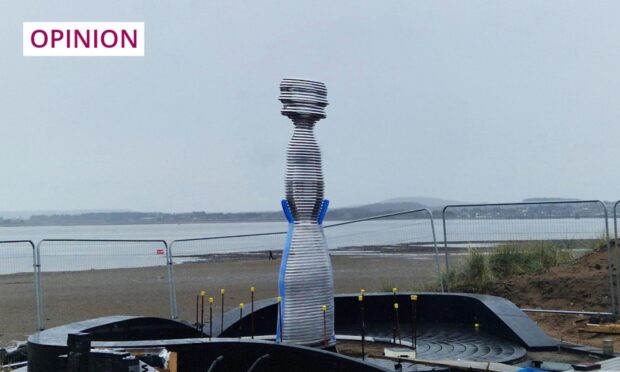
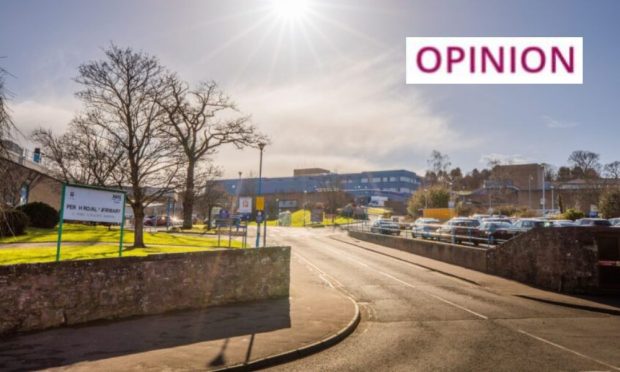



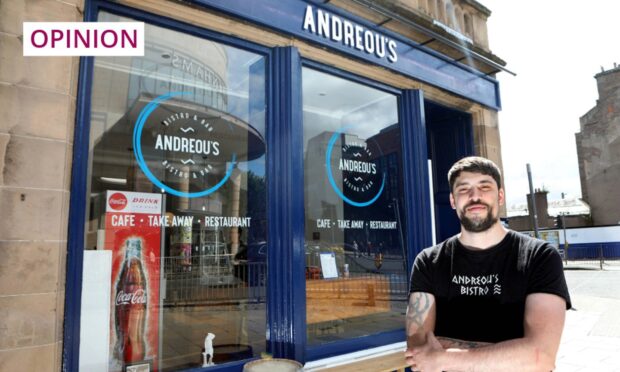


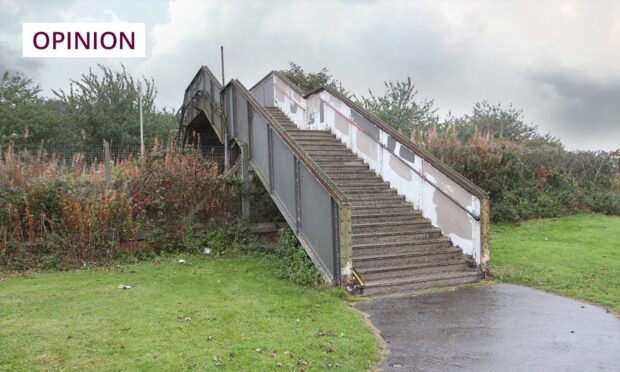
Conversation